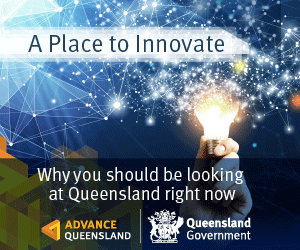1MG FlippingBooks
The risk of a dysregulated digital economy
Australia’s digital transformation necessitates a cohesive approach to tech industry regulation. If we get it wrong, we put innovation and productivity at risk, writes Simon Bush from the Australian Information Industry Association.

Governments around the world are grappling with the profound integration of digital technologies across their economies as well as the rapid pace of change. Many are assessing the needs of their modern digital economy by ensuring it has the required sovereign capabilities and robust supply chains, as well as supporting ‘buy local’ policies.
However, for the tech industry, governments have demonstrated limited understanding of the complexities of supply chains, the global nature of clouds and data sharing benefits, and how tech regulation - and at times protectionist sovereign-first policies - can stifle innovation and drive up costs.
In Australia, the regulation of technology is an uncoordinated tangled web characterised by overlapping, intertwined rules and regulations that impact on effective industry compliance.
Digital technology is not just a vertical sector in our economy, but a horizontal enabler that touches every pillar and every business: in fact, more than 80 per cent of jobs now require some form of digital skill. Immense in size and growing rapidly, the digital economy now ranks as the third largest sector in the Australian economy, contributing $167 billion to GDP.
Cyber security, ESG reporting and AI governance: in these key policy areas, our government should be a leader, yet is a laggard – something that has only become more clear since the launch of ChatGPT on November 30, 2022. Although our leaders have detailed regulations across the economy, whether existing or prospective, they often don’t apply the rules for themselves.
The AIIA position is that government needs to work with industry in developing appropriate responses to issues as they emerge; after all, the experts best placed to make these calls are almost always those who control them day-to-day, inventing the technology and building the code or hardware.
The Australian Government’s own best practice regulatory guidance is to hold regulation as a last resort; however, this is regularly ignored. The overlapping laws around cyber security regulation and compliance in Australia are so complex that the government introduced a Cyber Security Coordinator to provide a more integrated, whole-of-federal-government-and-industry approach.
AI is not magic, but mathematics. It is a powerful productivity tool that each of us use every day via smartphones and desktops. It is not a new technology; however, the recent emergence of generative AI and large language models has been transformative, warranting closer examination by governments as use cases and the technology evolve.
AI and generative AI are powerful augmentative tools; a co-pilot that has emerged from the digital economy and scientific advancements in training large language models and neural nets. The opportunity is for Australia and the world to harness AI, alongside automation and robotics, in a way that is responsible and intelligent, and the AIIA has already taken several crucial steps in this direction.


Images generated by AI
In March, the AIIA partnered with KPMG to launch “Navigating AI”, an industry paper with a practical checklist to assist private organisations in deploying AI with confidence. The AIIA is also a member of the CSIRO-led National AI Centre’s Responsible AI Network.
Where the risks are near-term and significant enough to warrant government oversight, AI should be regulated. We aren’t concerned about the extinction risk of AI; however, government may seek to regulate in cases where bias might impact legal rights, deep fakes might confound democracy, or driverless trains might pose risks to human safety.
Government must be guided by demonstrable and acute risk, use a principles-based approach, and ensure that the pressing opportunity of AI is always at the forefront, just as it seeks to ensure that industry-led frameworks such as the AI Ethics Principles are taken up by organisations of all size.
The technology industry is critical to the functioning of a modern digital economy, with tech at the heart of every named critical industry or System of National Significance – from Defence to energy, transport, banking, retail and health.
Given this reality, it is no surprise that government will look to regulate our sector more, not less, moving forward. The AIIA will continue to work with government to ensure that regulation is targeted, effective, and streamlined, and practical and effective to implement.
Simon Bush is the CEO of the Australian Information Industry Association.
Video: The urgent risks of runaway AI - and what to do about them










